The reading and viewing of politicians and officials the world over is similar.
They’ll turn to newspapers and journals of record to inform them.
Many will flick through the FT, and a national paper of record like Le Monde, Frankfurter Allgemeine Zeitung.
Their reading will be influenced by their political preferences.
Many will have trusted weekly reads like the Economist and often a national political weekly.
Popular generalist magazines like the New Scientist and National Geographic are often read.
The political class will watch/listen to similar TV and radio news programmes.
On any given issue there will be journals of record that people read. You’ve probably never heard of them, but if you work in the field, you’ll have a subscription. I’ve been an avid reader of ENDS, Fishing News, and Chemical Watch.
As a campaigner and lobbyist, one of the easiest things you need to do is to find out what decision-makers read, watch and listen to.
You can then focus your communications in those journals of record.
If you get the right story in front of someone in their morning read, the more likely it is that they are likely to take action.
I’ve noticed that getting a good story in the right newspapers or news item, at the right time, that’s read or seen by the politician, their advisers, or family, works wonders.
Some Old Case Studies
I’ve dug up some old work and provided a few lines on what the outcome was. The real work was done by some excellent investigators, campaigners, and media teams. Harnessing their work to bring about political change is the easy part.
Getting France to Back Blue Fin Tuna CITES Listing
Bluefin tuna has been fished to the brink of extinction | The Times, 19 January 2010
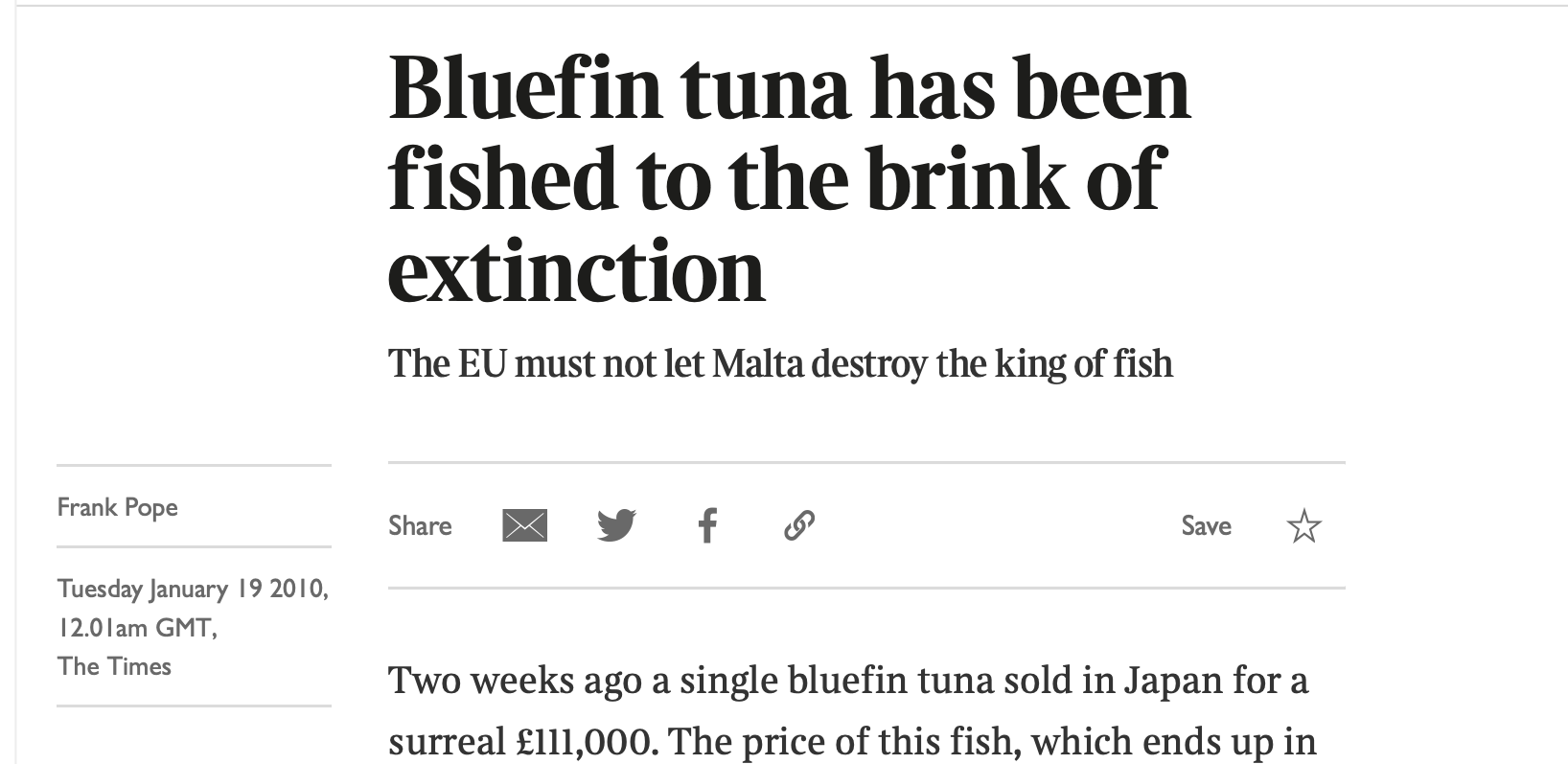
I discovered that all sensitive political decisions in France are taken by the President. We wanted to get President Sarkozy to overturn the decision of the French fisheries minister, Bruno Le Maire, and get France to back a CITES listing proposal by Monaco for Blue Fin Tuna.
It seemed that the French President read two newspapers every morning. One French and the second, the Times of London.
So, maybe, if we could get the French President to know the fate of a majestic species was in his hands, maybe he would change France’s position, and with it, Europes.
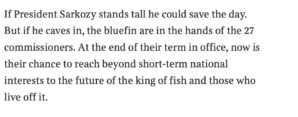
Soon after the French President read it, his office convened a meeting of the key ministers and officials, and informed the Commission they had changed their mind, and backed the CITES listing.
France backs delayed ban on bluefin tuna trade | Financial Times, 3 February 2010
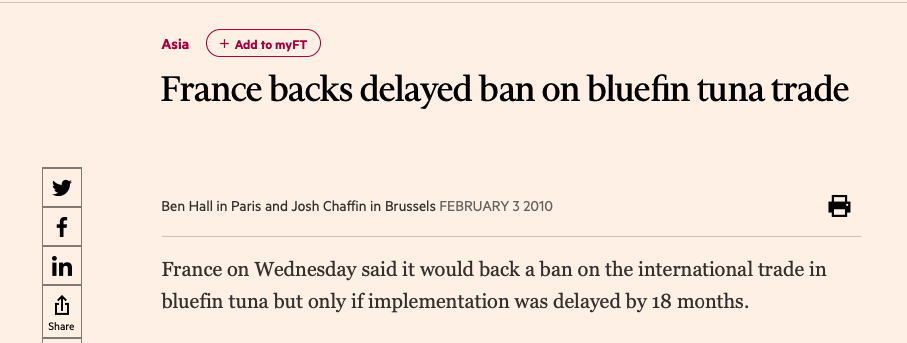
In case there was any confusion about France’s position in the Commission, what better place for senior officials to learn about it than from the FT. An easier read than briefings from officials.
Getting the Commission to back CITES Listing
We needed to help get DG Environment’s proposal to support the CITES proposal backed by the Commission. The fisheries department were against it.
What better place to show the wider Commission what was happening than the FT.
EU considers bluefin tuna protection | Financial Times, 21 August 2009
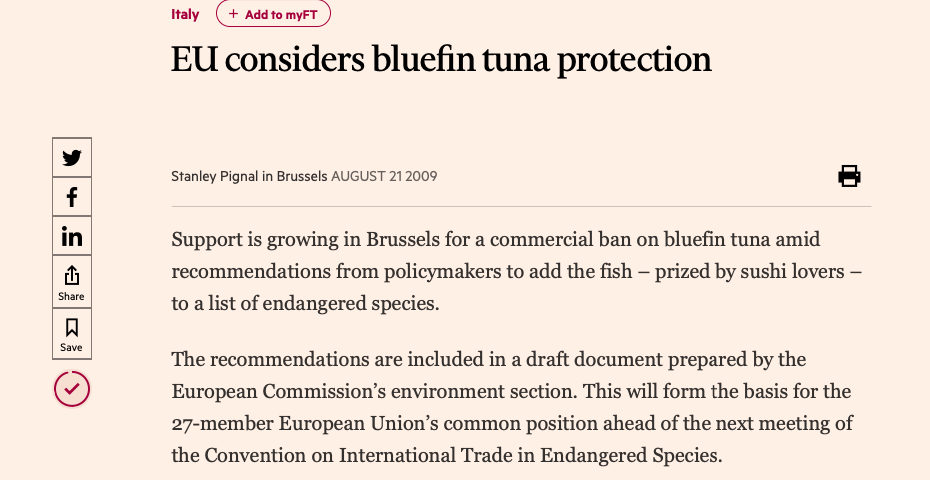
This piece in the FT helped make the arcane matter of CITES proposals going through inter-service consultation a lot more interesting for the President’s Cabinet. The Commission backed the CITES listing proposal.
Reframing the Issue
I am a fishing policy wonk who realises that few people are interested in the textbook example of the tragedy of the commons.
What more people are interested in is corruption and links with dictators.
Libya’s former dictator, Colonel Ghaddafi and one of his sons, had a major interest in the Blue Fin industry.
If people got to learn about that, maybe they’d see things in a very different light.
Over time, those links got more coverage.
MaltaToday, 21 May 2008 | Azzopardi Fisheries caught up in net of EU investigations, 21 May 2008
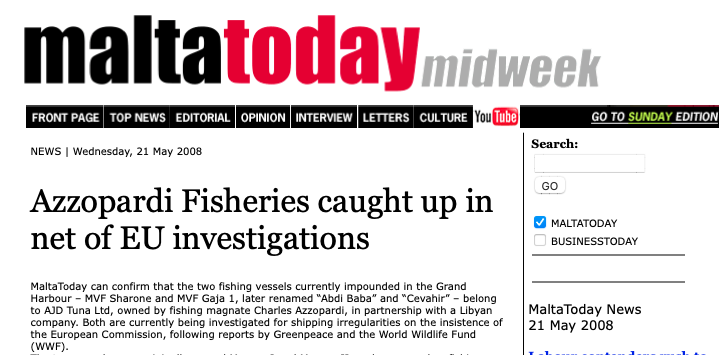
EU fishing head wants crackdown on Libya tuna trade | Reuters, 11 May 2011
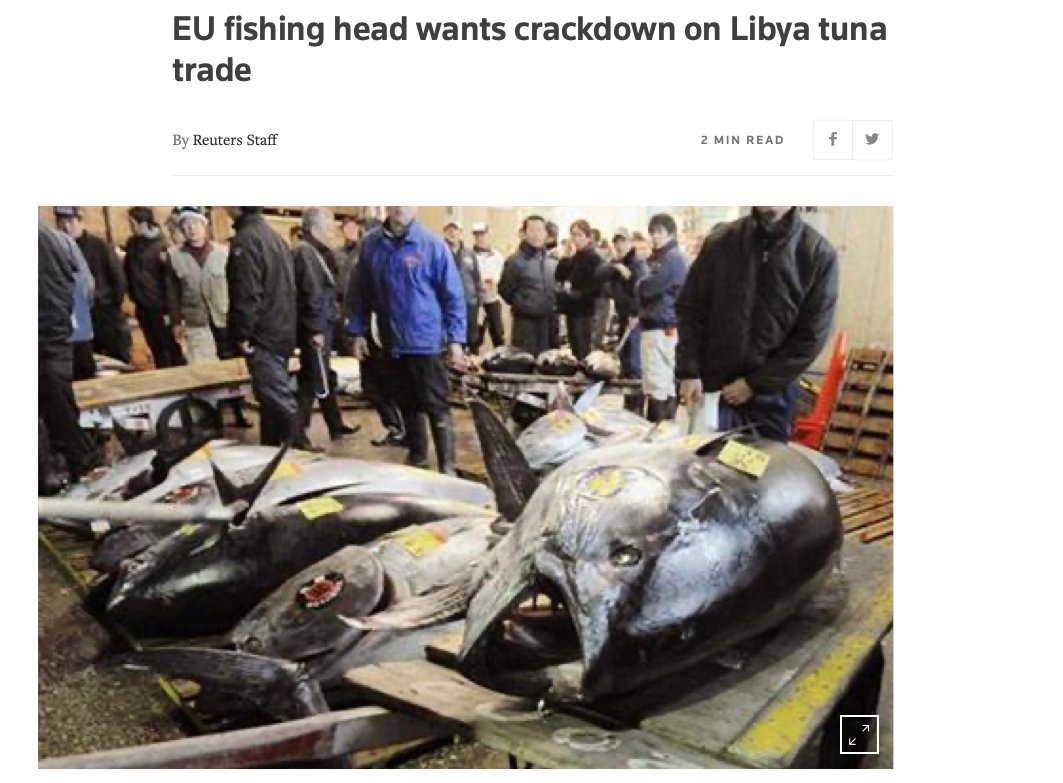
The late Colonel’s appearance helped pique the interest of the US government and other European countries, not interested in fisheries, became a lot more interested.
Fewer countries were prepared to step in to defend a system that was bankrolling the late dictator’s family.
The National Geographic, April 2007
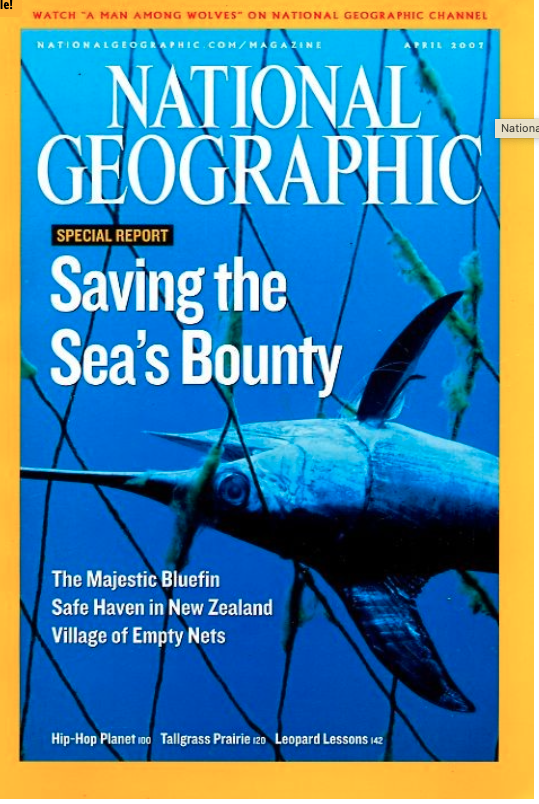
For reasons I don’t fully understand, National Geographic has a tremendous influence on global policymakers. When they run with the story, especially a front-page cover, you find newfound allies in places you never knew.
When this April 2007 edition came out, with a piece on Bluefin tuna in the Mediterranean, the debate in Europe and globally sifted.
More recently, soon after this June 2018 front cover on plastics, the EU and elsewhere brought forward a flow of legislative and political action on plastics.

Daily Mail
The Dail Mail, 9 June 2009, ran this story before a debate on discards.
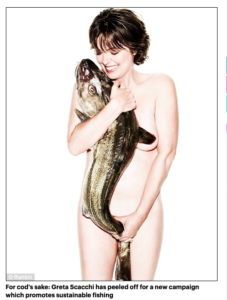
It piqued political interest amongst fishing ministers and officials.
Lessons learned
1. A great communications and media team is worth their weight in gold.
2. Work with your communications team to make complex issues clearer. Most policy issues are complex and need to be simplified. Few issue or policy experts can make issues clear enough for non-experts to understand what they are saying.
3. A key part of your job as a lobbyist is to help journalists. As a rule of thumb, you need to help someone at least 10 times before you can expect anything from them.
4. Many of these stories take a lot of work to land. The investment is not for the faint-hearted. It takes a long term approach to build relationships with key journalists and media outlets.
5. You can’t be sure when opportunity strikes. You don’t control the news cycle. You can just benefit from it. The upsides are too great to ignore The media influence politicians and decision-makers.
6. If you want to move the needle on your issue you are going to have to move outside your echo chamber. You need to grab public interest in the issue. The most effective way to do that is through the media, and to this day, to influence decision-makers, the mainstream media that they read and watch.
7. You need to read what the decision-makers in your field read. I read the FT, Guardian, The Economist, BBC News, National Geographic, New Scientist, ENDS, and Chemical Watch.
8. When a journalist calls with a background question, you help them out. One day, they may run your story.